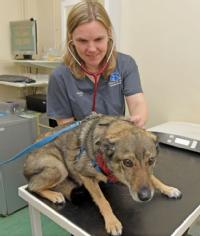-
-
- Council Members
- Role of Council Members
- Council meetings
- Council elections
- Previous election results
- Dr Louise Allum
- Dr Sam Bescoby
- Dr Andrew Clemence
- Dr Tshidi Gardiner
- Dr Reginald Godwin
- Paddy Gordon
- Dr Danielle Greenberg
- Dr Gerard Henry
- Dr Richard Hillman
- Dr Benjamin Kennedy
- Dr Tom Lonsdale
- Dr Darren Partridge
- Martin Peaty
- Alison Price
- Dr Peter Robinson
- Dr Jennifer Simmons
- Dr Sadie Spencer
- Dr Mary Thomas
- William Wilkinson
- Dr Lara Wilson
- Past-Presidents
-
- Advancement of the Professions Committee
- Standards Committee
- Audit and Risk Committee
- Education Committee
- Disciplinary Committee
- Charter Case Committee
- Preliminary Investigation Committee and Disciplinary Committee Liaison Committee
- Registration Committee
- Preliminary Investigation Committee
- Paper classification: some definitions
-
-
-
-
-
- About extra-mural studies (EMS)
- EMS requirements
- Information for vet students
- Information for EMS providers
- Information for vet schools
- Temporary EMS requirements
- Practice by students - regulations
- Health and safety on EMS placements
- EMS contacts and further guidance
- Extra-mural studies fit for the future
-
-
- Code of Professional Conduct for Veterinary Surgeons
- Code of Professional Conduct for Veterinary Nurses
- Contact the Advice Team
- XL Bully dog ban
- 'Under care' - guidance
- Advice on Schedule 3
- Controlled Drugs Guidance – A to Z
- Dealing with Difficult Situations webinar recordings
- FAQs – Common medicines pitfalls
- FAQs – Routine veterinary practice and clinical veterinary research
- FAQs – Advertising of practice names
- GDPR – RCVS information and Q&As
-
- Accrediting veterinary degrees
- Accrediting veterinary nursing qualifications
- Reasonable adjustments for student vets
- Reasonable adjustments for student veterinary nurses
- Health and disability in veterinary nurse education and training
- Reasonable adjustments for students and the UK disability discrimination legislation
- Educational assessment of veterinary nurses
- Roles of key stakeholders in the application of reasonable adjustments
- Examples of reasonable adjustments for vet nurse students
- External review of the RCVS by ENQA
- Requirements for remote and online student assessments
VetGDP Adviser case studies
VetGDP Advisers are integral to the Veterinary Graduate Development Programme, VetGDP. Over the next few months, we’ll be speaking to VetGDP Advisers to learn more about their experiences of supporting graduates in their workplace.
We hope these interviews will help you gain insight into the VetGDP Adviser role, as well as the positive impact the programme has in supporting graduates.
Please do keep an eye on this page, as there will be more case studies to come!
Q&A with Sandra Thomas MRCVS
 Why did you want to become a VetGDP Adviser?
Why did you want to become a VetGDP Adviser?
We were thrilled when one of the students who had done EMS at our practice accepted a job offer, but to employ him we needed a VetGDP Adviser within the practice, so I decided to do the training.
What did you think about the online training?The online training ensures that everyone approaches VetGDP in the same way and all new graduates get similar support.
How many graduates have you been a VetGDP Adviser to?I have been a VetGDP Adviser to one new graduate so far.
Could you tell me about your experiences?I help our graduate vet understand what they are doing well, assist with any gaps in their knowledge and guide them on how to reflect on their performance and what they have learned. Sometimes this involves discussing surgery beforehand, observing and commenting as they are operating, answering questions as they arise and being available for support when they need it.
With medicine it is similar - either planning cases before they are seen or giving guidance during them or reviewing them afterwards. It also involves regular scheduled meetings to chat about progress, goals and any concerns the graduate has, including how they were coping.
Has anything been challenging?The most challenging part is trying to help the graduate with whatever they’re finding difficult.
What has been the most rewarding part?The most rewarding part of the process is definitely seeing the graduate improve and successfully and confidently complete operations and cases that they may have struggled with initially.
Interview with Fay Pooley MRCVS
Any questions?
If you’d like to learn more about becoming a VetGDP Adviser, or have any questions, please visit our Advisers page.
If you are due to graduate or would like to know more about VetGDP as a first-year vet, please visit our graduate page.
If you have any further questions or are interested in being featured in this series of case studies, please email our Education team at [email protected].